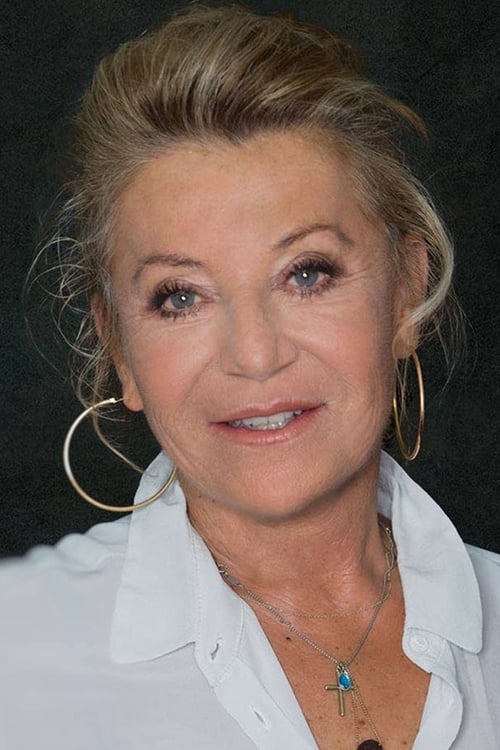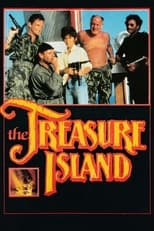
0
Sheila
Born · August 16, 1945 (79 years old)
Known For: Acting
Place of Birth: Créteil, Val-de-Marne, France
Bio
Sheila (born Annie Chancel, 16 August 1945) is a French pop singer who became successful as a solo artist in the 1960s and 1970s, and was also part of the duo Sheila & Ringo with her husband singer Ringo. She also fronted a disco act called Sheila and B. Devotion. Her stage name came from the title of her first release, a French cover version of "Sheila", a hit by Tommy Roe. Throughout her career, Sheila has sold more than 85 million records worldwide. Sheila started her musical career in 1962, after being noticed by Claude Carrère, a French record producer and songwriter. Her parents signed a contract with Carrère for her, when she was 16; the contract led to an artistic collaboration which lasted for more than 20 years. In 1995, a lawsuit put an end to this life-time deal. She entered into a long royalties battle against her former producer, which she won. Sheila had numerous hits in the 1960s, 1970s, 1980s and 1990s, playing the typical 'girl next door'. Her first hit was "L'école est finie" ("School is over"), in 1962 (1 million copies). It reached the #1 position in France. In the movie, Eight Women, Ludivine Sagnier sang her 1963 hit "Papa t'es plus dans l'coup" ("Daddy, you are not in on it anymore"). Sheila's music also featured in the 1996 François Ozon film Une robe d'été (A Summer Dress). The character Sébastien is a fan of Sheila, and Sheila's version of Cher's "Bang Bang (My Baby Shot Me Down)" was on the soundtrack. "Les rois mages" also featured in "Ma vie en rose", a 1997 gender-bender film, "Love me baby", in 1978, "Attention les enfants regardent", with Alain Delon, "Spacer" in "Podium" (2004). After more than a decade of targeting the French teen music audience, mainly in French but also in Spanish, German and Italian, Sheila made a change in her career by releasing "Les Femmes (Qu'y a-t-il dans le cœur des femmes)", a song by Christine Charbonneau in 1976. "Les Femmes" climbed to number one and stayed in the chart for three months. "Les Femmes" brought to Sheila a revolution of modernity, making her one of the idols of the French pop music. In 1977, she started singing in English as Sheila and B. Devotion (in some countries records were under the name "Sheila B. Devotion") and changed her style to disco music. Sheila was accompanied by three male dancers who made up the "Black Devotion" in her routine. She enjoyed international success with hits such as "Singin' in the Rain", "Love Me Baby", "You Light my Fire" and "Spacer" (from the album King of the World, produced by Chic). "Spacer" is one of her biggest hits with more than 5 million copies sold worldwide. According to different interviews, she often said her experience with Chic completely changed her way of working and singing. It was the beginning of a deep artistic disagreement with her French manager Carrère, which made Sheila leave France, move to New York "to start all over again" and studied at the Actors Studio. After her disco period, in 1981, Sheila (without the "B. Devotion" gimmick) recorded the rock album Little Darlin', produced by Keith Olsen, and was back in the U.S. Billboard chart. The title song became her only U.S. Billboard Hot 100 hit, reaching #49 in early 1982. ... Source: Article "Sheila (French singer)" from Wikipedia in English, licensed under CC-BY-SA 3.0.
Sheila, toutes ces vies-là
Self
7.5
2022
Il était une fois Champs-Élysées
Self (archive footage) · (2 episodes)
6.6
2022
Sheila - Tournée anniversaire : 60 ans de carrière
0.0
2022
La TV des 70's : Quand Giscard était président
Self (archive footage)
7.2
2022
Chroniques de l'âge tendre
Self
8.0
2021
Archives secrètes
Self (archive footage) · (1 episode)
0.0
2021
Numéro un - Demis Roussos
Self
0.0
2020
The Masked Singer France
Écureuil · (1 episode)
5.6
2019
La Génération Salut les copains
Self
8.0
2019
La Boîte à secrets
Self · (1 episode)
0.0
2019
The secret song
Self · (1 episode)
8.0
2018
Quotidien
Self - Guest · (1 episode)
6.2
2016
Amanda
Self · (1 episode)
0.0
2016
Nile Rodgers: Secrets of a Hitmaker
Self
6.7
2015
La Parenthèse inattendue
Self · (1 episode)
8.5
2012
Danse avec les stars
Self - Candidate · (8 episodes)
6.1
2011
Belle et Bum
Self · (1 episode)
0.0
2003
Star Academy
Self · (2 episodes)
6.4
2001
Stars à domicile
Self · (1 episode)
6.8
2001
Vivement dimanche
Self · (1 episode)
3.0
1998
Cambiando el destino
Imán
4.3
1992
Téléthon
Self · (1 episode)
5.0
1987
Collaricocoshow
Self · (1 episode)
0.0
1987
Le monde est à vous
Self · (4 episodes)
0.0
1987
Sacrée soirée
Self · (4 episodes)
6.2
1987
Treasure Island
Aunt Helen
6.2
1986
Victoires de la musique
Self · (1 episode)
2.0
1985
La Chance aux chansons
Self · (1 episode)
4.0
1984
La Chance aux chansons
Self (archive footage) · (1 episode)
4.0
1984
L'Académie des 9
Self · (1 episode)
0.0
1982
Champs-Elysées
Self · (14 episodes)
6.2
1982
Fan School
Self · (10 episodes)
6.5
1977
Les Jeux de 20 heures
Self · (1 episode)
0.0
1976
30 millions d'amis
Self · (1 episode)
5.8
1976
Numéro un
Self · (16 episodes)
6.0
1975
Système 2
Self · (6 episodes)
0.0
1975
Les Rendez-vous du dimanche
Self · (13 episodes)
6.0
1975
Midi Première
Self · (44 episodes)
10.0
1975
Midi trente
Self · (18 episodes)
6.0
1972
Le Grand Échiquier
Self · (1 episode)
8.0
1972
Cadet Rousselle
Self · (4 episodes)
0.0
1971
La Lucarne magique
Une vedette
0.0
1971
Samedi soir
Self · (2 episodes)
6.0
1971
Terzo canale - Avventura a Montecarlo
Herself
4.0
1970
Bang Bang
Sheila
4.0
1967
Dim Dam Dom
Self · (1 episode)
6.0
1965
Graduation Year
Self
8.0
1964
Reflets de Cannes
Self · (1 episode)
2.0
1954



